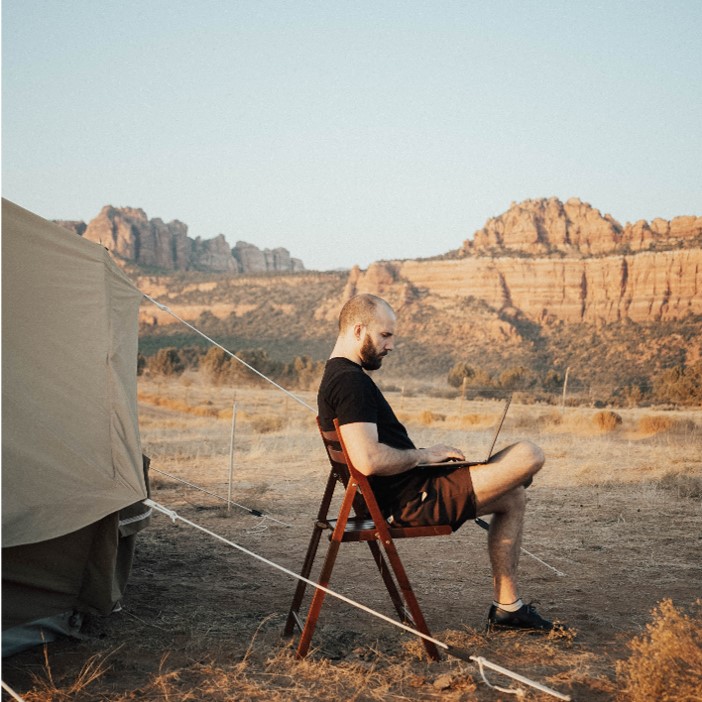Dealing with Digital Deserts
by Kathy Gromoll

With a large portion of the population living where they want to live and working from home, remote work has taken on a whole new meaning.
Have you heard the term “digital nomads”
Investopedia defines digital nomads as “individuals who work remotely using information and communications technology.” But what makes them nomads versus people who simply work from home is that so many of them are traveling or even living full time on the road while working. They work at locations like cafes, beaches, hotel rooms, and, more recently, out of their travel homes.
If you’re thinking of becoming a digital nomad, there’s one major challenge you must be ready to meet when traveling, and that is the need for reliable internet access. When digital nomads find themselves where there’s no access or very limited access to the internet, they call it being in a “digital desert.”
Statistics cited by Kristin Cooke in her article, The Top Internet Deserts in the United States, show that in 2019 it was estimated that over 21 million Americans lacked access to internet service at broadband speeds. The article goes on to say that many of these digital deserts are “sparsely populated or rural areas, though many are also urban areas where services like high-speed cable, DSL, and fiber internet don’t reach.”
That may be the reason behind most digital deserts, but in one small community in the U.S., it’s not a lack of internet but rather a lack of wireless technology. Near Green Bank, West Virginia, wireless technology is legally restricted due to the Green Bank Observatory (formerly the National Radio Astronomy Observatory/NRAO), which is owned by the federal government and the National Science Foundation. To limit possible sources of interference with the telescopes, including the largest fully steerable radio telescope in the world, there are certain technology restrictions within a 10-mile radius around the Green Bank Observatory campus, which can affect parts of the area but not the entire town. Basically, this means they can’t use wireless internet or anything that emits wireless frequencies, including automatic door openers, microwave ovens, etc., within that 10-mile radius.
I’ve run into a few situations as a consultant when traveling and would like to share some things to think about to be prepared to deal with digital deserts, especially if you are not a tech savvy nomad.
I once stopped at a rural hotel that advertised “free internet.” It turned out that they had service via a telephone modem hookup. Although I normally travel with my laptop along with what I need for connections for Ethernet, phone dial-up, and Wi-Fi connectivity possibilities, I had forgotten some of this support equipment on this trip. I was lucky enough to find a local library with cable connections where I was able to complete my work and send a large file to a client.
Later, I ran into a similar problem at a hotel at the beach where my Ethernet wiring wouldn’t work at all with their equipment. In that situation, I found a community center that offered internet services for a $1 an hour, which turned out very well for my purposes.
In addition to encountering digital deserts while on the road, I also live on an island where we frequently lose electricity. Although my phone will work for some purposes, I still need to use my computer. So, I have invested in a small portable battery for under $200 that can be used with any electrical or electronic device. This battery can be charged via an outlet, a car lighter, or via small, portable solar panels (included). I can hook up my computer for a few hours to this battery in case of such an emergency.
Another option is to make your phone into a private hotspot for internet use (or purchase a separate hotspot device) and connect your computer to your phone/device. Alternatively, you might be able and willing to pay for a Satellite phone or for your own private generator.
Regardless of where you are and whether it’s limited connectivity or power grid issues, be sure to review your options and plan ahead so you’ll be prepared for dealing with digital deserts whenever you encounter them.
________________
AustinPeopleWorks is a people resource for the gig economy, and we have a 100% remote work culture. To learn more about how we might partner to achieve your goals, please reach out to us at https://austinpeopleworks.com/contact.
